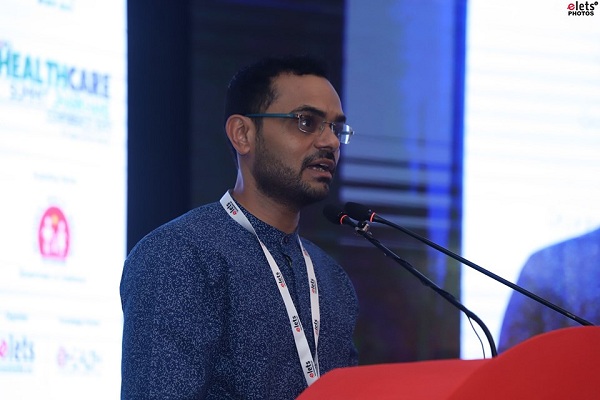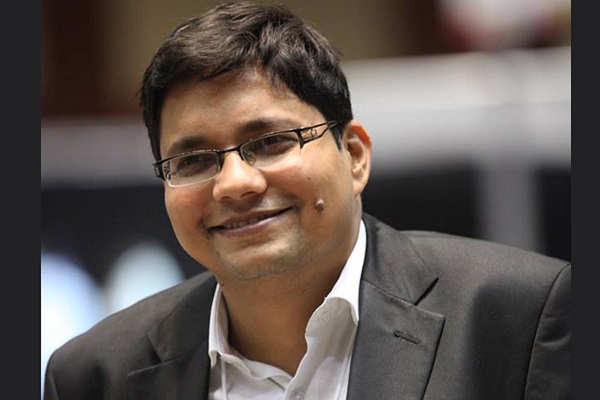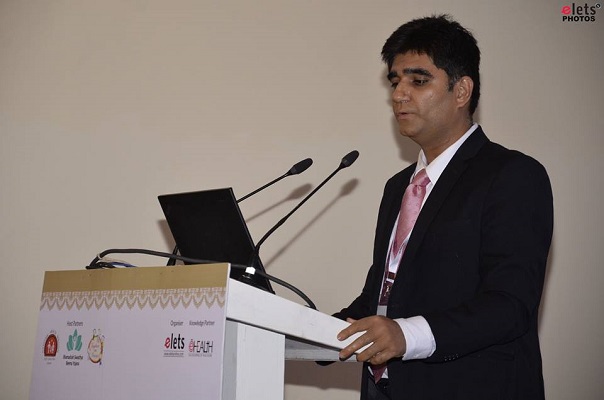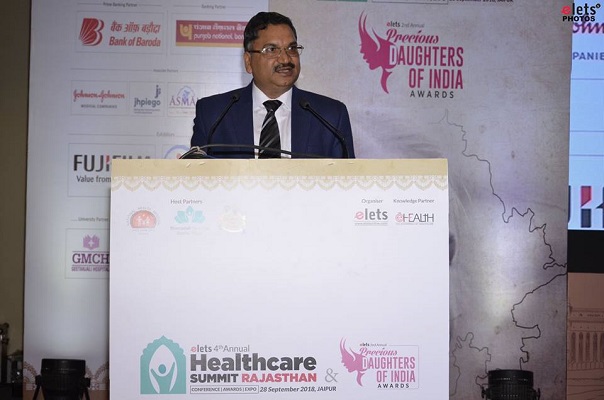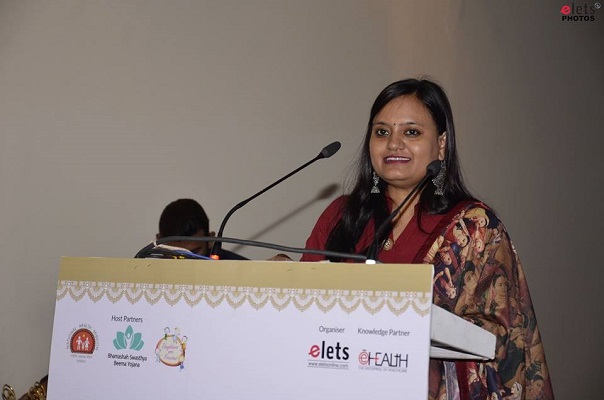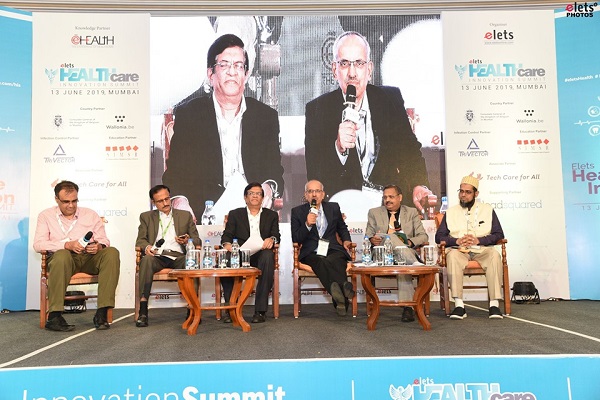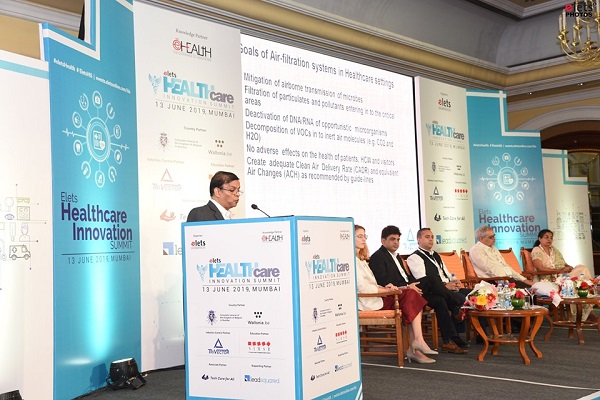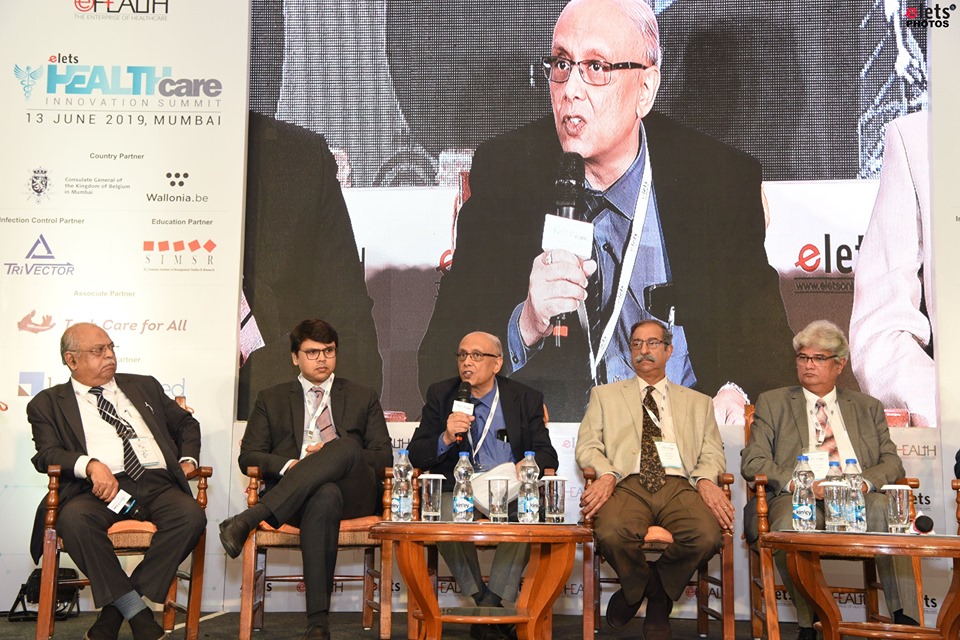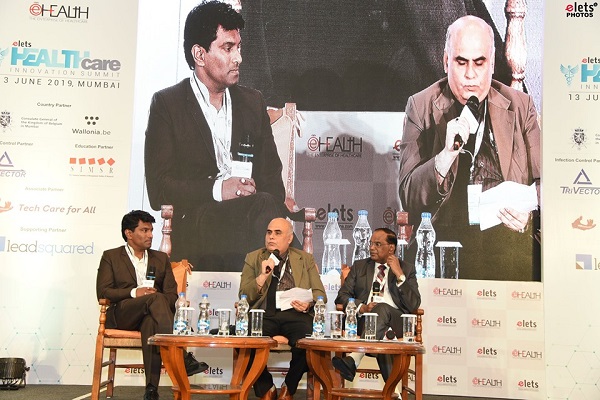
 In the light of India facing a double whammy of both communicable and non communicable diseases, affordable and cost-efficient model of healthcare delivery model has become a focus point of discussion among healthcare luminaries. But, it’s not an easy task to balance both quality and affordability as there is no set standard for the same. What could be affordable for someone may not be same for others. Technology, innovations and smart approaches at some extent could be helpful to create such model.
In the light of India facing a double whammy of both communicable and non communicable diseases, affordable and cost-efficient model of healthcare delivery model has become a focus point of discussion among healthcare luminaries. But, it’s not an easy task to balance both quality and affordability as there is no set standard for the same. What could be affordable for someone may not be same for others. Technology, innovations and smart approaches at some extent could be helpful to create such model.
Exploring above pertinent points, a panel discussion was recently held on the sideline of 3rd Healthcare innovation Summit, Bengaluru. A galaxy of experts shed light on various contours of quality and affordability on this occasion.

Speaking on this occasion, Dr Nandakumar Jairam, Chairman, Columbia Asia Hospitals, said quality should not be enforced upon service providers. It should come from within.
“Quality can’t be enforced by regulatory agencies or accredited agencies. It has to be self- driven and self-motivated. One should also keep in mind what KPIs or indicators are important to understand clinical outcome, patient safety and other aspect of quality, one wants to monitor. Authentic data collection and its analysis are other important aspects,” Jairam said.
He further said manual system can’t cope up with huge burden in terms of volume of data. “Quality based on manual system is doomed to be failure. Because the volume that will come up and the manner on which it has to be accessed and analysed, will fall short of what is required. Analysis of this and what is clearly available by global standard and large part of Indian standard would help us benchmark ourselves what is appropriate and what is not.”

Quality is a journey that never ends. It has a journey that has beginning and continuous forward movement, depending upon what becomes more important and less important as you walk along the journey, he said.
Talking about initiatives at Columbia Asia Hospitals, he said, “We are the hospital which started and remained paperless since 2004. We have our own operating system. It is very capable not only for collecting but throwing out the data that is important to us. There are few areas including customer satisfaction are still manual. Until recently, accessed through manually but clinical data by and large has been automated.”
Elaborating whether affordability impacts quality, Guruprasad B R, Vice President, Sparsh Group of Hospitals, said, “Affordability has different ramifications. In healthcare nobody wants to pay until he or she faces serious issues which can’t be managed easily. It becomes very difficult at times to gauge who can afford the costly facility or those who can’t manage high expense. Every hospital should pronounce that they have some specific standard of quality associated with particular amount of cost. Quality is proportional to cost.”
While answering on how she analyse patients’ experience, expectations and satisfaction in this age of consumerism, Shailaja Suresh, CEO, BGS Gleneagles Hospital, said, “Both healthcare cost and patients’ expectation is increasing. Healthcare expense puts huge burden on financial budget of a patient. Patients want their value for money.”
“We follow patient centric approaches and strategies. It should be backed by patients’ insight and analytics. Innovations play a major role on this front.”
Underscoring innovative ways to improve things, she said, “We could think of bringing down patients’ waiting time or mull over removing patients’ waiting room. Healthcare providers should anticipate patients’ expectation and live up to them. We should also look on how we benchmark ourselves. Good practices must be replicated to enhance care.”
Quality and affordability are two factors which decide patient base of a particular hospital, said Dr Vijayabaskaran Sundararaju, Executive Director, Kauvery Hospital.
“Patients don’t get influenced by swanky building and fancy staff, but the kind of care they get from the provider. Healthcare providers should try to balance between quality and affordability. Before starting a project, many factors should be taken into account including locality, demography of patients, and range of services with which a patient will be catered with,” Sundararaju said.
Dr Aloke Mullick, Group CEO, Omni Hospitals, said that smart hospital should be smart in true manner.
“Smart hospital needn’t to be IT-driven hospital. Lots of smartness is in common sense. One can create smart hospital by adopting smart things and lot of common sense. There was huge waiting time in one of the hospital I associate with. We simply increased throughput by 50 percent without using any technology. We simply analysed waiting time and removed bottlenecks to increase the throughput. In my current hospital we improved things by adopting standard cost benchmark procedure, and standard revenue leakage avoidance,” Mullick said.
“Cross industry benchmarking is important. Net Promoter Score (NPS), is great tool to measure customers’ satisfaction.”
Underling the importance of compassion in healthcare services, he said, “Quality of human touch point is very important. Empathy plays a pivotal role in patients’ satisfaction which in turns influence patient care. Empathy and kindness of lowest level of staff including nurses and housekeeping employees, are going to bring back patients again and again to your hospital.”
“In our hospital, we have started a regular meditation programme for all of our staff. We have a special trainer who ensures every staff to be kind and compassionate,” he said.
Be a part of Elets Collaborative Initiatives. Join Us for Upcoming Events and explore business opportunities. Like us on Facebook , connect with us on LinkedIn and follow us on Twitter , Instagram.


